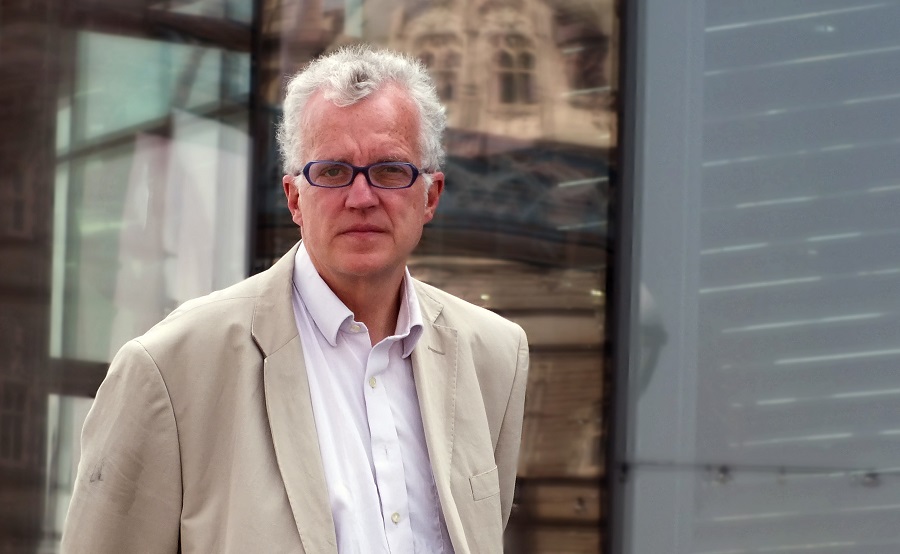The police are to target specific ethnic groups for stop and searches as part of an unprecedented security operation on the London Underground and the railways.
The highly controversial measure was revealed by the chief constable of the British Transport Police, Ian Johnston, in an exclusive interview with the Mail on Sunday, in which he also warned that the most likely target of another attack could be the overground railway network.
Asked what measures the BTP were taking in the face of the threat of further terrorist attacks, Johnston made it clear that he would not shy away from targeting those groups likely to present the greatest threat – most obviously young Asian men.
He said: ‘Given the level of threat, intelligence led stop and searches have got to be the way,’ adding that there were ‘challenges for us in managing diversity as an issue’ but that ‘we should not bottle out over this. We should not waste time searching old white ladies’.
The targeting of particular ethnic groups, known as ‘racial profiling’ is hugely controversial and certain to meet opposition from the civil right lobby. for His comments are a clear indication that the BTP is planning to introduce This is in marked contrast to New York where the mayor, in announcing that there would be random bag searches, stressed that they would not focus on particular ethnic groups.
Mr Johnston is confident that so far ‘there is every sign that the Muslim community understands the predicament we face’ and the police will continue to receive support from them, even if young Asians become the focus of most police searches. ‘We must have a mature attitude to the diversity debate’, he added. ‘We have to gain the confidence and understanding of these communities’.
The police are aware that they will have to tread extremely carefully. While so far they have had the support of ethnic communities, if Asians feel that they are being harassed unnecessarily, the support obtained from the Muslim community in the past few weeks could be lost.
There are major fears that the next round of attacks may be focused on the national rail system rather than the Underground because of the much greater police presence in the Tube network.
While the police accept that it is impossible to know whether or not there will be further attacks, the railways are seen as an obvious target. Already searches of major stations have been stepped up with hourly checks and extra protection is being given to trains kept in sidings overnight.
The police are anxious to see better management of crowded main line stations by trying to get people onto platforms more quickly so that they do not clog up concourses where they are seen as more vulnerable. However, police accept that some areas are so overcrowded that there is little that can be done to improve the situation.
More operations like last Thursday’s when Underground and main line stations were swamped by a massive police presence are envisaged. According to police sources, their value is demonstrated by the fact that the second wave of bombings on July 21 happened at lunchtime while police were concentrating their presence on the Tube on the morning and evening peaks.
Although that level of policing cannot be provided every day, occasional major deployments will be carried out.
Keeping the Underground and the national railway system going normally is now one of the main priorities for the police. Mr Johnston said that the IRA had, at times, paralysed the transport network through a series of hoax calls in addition to their occasional bombs: ‘The public has a key role to play here. They must be more careful about their belongings but also be prepared to report anything suspicious’. People, he said, are much more responsive to drivers and stations announcers giving out messages personally rather than using recorded or computerised announcements and the police will be trying to ensure that the latter are used less often.
Technological solutions such as scanners that checked people going into the system were dismissed by Mr Johnston: ‘You could do one in a hundred or one in 200, but if you tried to do any more, people trying to get into Oxford Circus station would back up to Bond Street. You would just be doing the terrorists’ job for them’.
The most useful technology has proved to be CCTV cameras but at the moment the police are hampered by the fact that there are so many different types of system and that there is no standardisation or regulation.
Mr Johnston said that the current state of security, which is at the highest level, will remain for several weeks at least and that it may be a matter of years before security levels are relaxed considerably. Railway sources confirm that the network has been at a high state of alert ever since the Madrid bombings and it is expected that this will continue for a long time.
